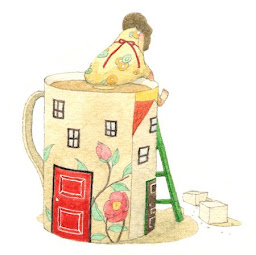A health treatment that is not classified as standard western medical practice is referred to as "alternative" or "complementary." Alternative treatment for depression refers to health-care practices considered outside the scope of conventional Western medicine. Many are being integrated into traditional-medicine settings as their safety, effectiveness, and scientific validity are recognized.
Alternative treatments for depression rely on the fact that depression, at crux, is a biochemical illness. Whether the main triggers are physical or emotional, these triggers then induce a broad range of neurochemical changes that, in turn, leads to the feelings of depression and to the physical and psychological disruptions that being depressed then causes.
Once one thinks about the biochemistry it should not be surprising that alternative treatments for depression often play an important role.
There are many alternative treatments available for depression. Each of these alternative treatment of depression addresses human suffering in different ways, but generally they seek to re-establish a balance or harmony within the body and in the lifestyle of the person being treated.
Alternative treatments for depression are as follows:
- Acupuncture - The World Health Organization lists depression among the conditions for which acupuncture is effective. Some studies have shown it markedly lessens symptoms. Acupuncture can be a valuable alternative if you are unable to take antidepressants or have not found them helpful.
- Biofeedback
- Homeopathy
- Ayurveda
- Dietary factors - Because depressive symptoms can be exacerbated by nutritional deficiencies, good nutrition is important. Pay attention to eating a well-balanced diet. Quitting smoking is also advised.
- Aromatherapy - an alternative treatment for depression - Aromas can lower stress levels, affect mood, and even change perceptions of pain. The simple scents of fruits and flowers may lighten mild depression; try inhaling the aromas of jasmine, rose, or clary sage to ease your symptoms. Frankincense and sweet marjoram, inhaled or used topically, may be helpful in reducing stress, while lavender and German chamomile oils can bring on a relaxed state.
- Vitamins and Depression: like Vitamin-B(folic acid) and other supplements
- Colour Therapy
- Diet and Depression - it affects physical health and many aspects of mental health. A vitamin or herbal supplement might promote recovery of physical or mental health and/or help manage symptoms.
Colour Therapy, for example - Warm colors of yellow, orange, and red stimulate mood in color baths, lighting, room decor and clothing. People with hypertension should avoid too much red. These same colors in food provide anti-oxidants that reduce the effects mood swings brought on by allergies. Other research has found that using a negative air ionizer to lessen indoor allergies helps reduce mood swings.
Faith and spirituality have always been important in mental and physical healing. Today many spiritual leaders incorporate psychotherapy, offering professional counseling tailored to a belief system.











0 Response to "Alternate therapy"
Post a Comment